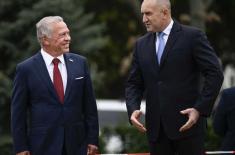
Lessons From PIA’s Paris Ad Blunder
Abdullah Hussain (@Abdulla99267510) Published January 27, 2025 | 07:21 PM

LAHORE: (UrduPoint/UrduPoint / Pakistan Point News-Jan 27th, 2025) Recently, the PIA was in news all over the world, which featured a PIA plane flying alarmingly close to the Eiffel Tower, accompanied by the bold caption, “Paris, we are coming today”.
Ali Sajjad, Editor-in-Chief of Minute Mirror, aptly pointed out in his piece, The Side Mirror the ad was not just thoughtless—it was a tone-deaf blunder that triggered immediate backlash. Social media platforms, especially X (formerly Twitter), were flooded with reactions. People from Pakistan and around the world, many still haunted by memories of 9/11, called it out. Some saw it as a veiled threat, while others were more direct in their condemnation. “What is the PIA management thinking?” seemed to be the question on everyone’s lips.
Ali Sajjad’s critique in Minute Mirror highlighted how the ad was not only poorly conceived but also deeply insensitive. His words struck a chord: “Creating something so provocative and not foreseeing the backlash is almost criminally negligent.” He also questioned how such an ad could have passed through multiple levels of approval without anyone raising a red flag. These are questions that still linger in my mind.
The backlash was swift and widespread. Social media users didn’t hold back. Some photoshopped their own versions of the ad, replacing the Eiffel Tower with other iconic landmarks under threat. Others called for accountability, demanding that heads roll in PIA’s marketing department. While I don’t support firing anyone over a single mistake, I can’t help but agree that this blunder was entirely avoidable.
What is baffling is how this ad got approved in the first place.
Marketing campaigns go through multiple layers of review, from designers to executives. Did no one in that chain of command see the potential for offense? Or was the concern overlooked in favor of creating a “viral” moment? As Ali Sajjad rightly pointed out, going viral shouldn’t be the metric for success—especially when the content leaves millions shaking their heads in disbelief.
To its credit, PIA has since issued an apology. They acknowledged the unintended offense caused by the ad and assured the public that they would be more mindful in the future. This quick response is commendable. It shows that PIA is willing to take responsibility for its mistakes and learn from them. In today’s world, where public trust is fragile, such accountability is crucial.
However, an apology alone isn’t enough. This incident should serve as a wake-up call for PIA and other organizations. In the age of social media, every decision matters. A single misstep can overshadow years of hard work. PIA must use this as an opportunity to reevaluate its marketing strategies and ensure that such blunders don’t happen again.
Ali Sajjad’s piece in Minute Mirror was a powerful reminder of the importance of thoughtful communication. In the end, this incident is a lesson for all of us. Mistakes happen, but how we respond to them defines us. PIA’s quick apology is a step in the right direction, but the real test lies in what they do next. Let’s hope this blunder becomes a turning point, not just for PIA, but for all organizations that seek to communicate with the public. After all, the skies are vast, and there’s always room for improvement.
Recent Stories

Currency Rate In Pakistan - Dollar, Euro, Pound, Riyal Rates On 4 April 2025

Today Gold Rate in Pakistan 04 April 2025

Abu Dhabi Art announces dates, visual campaign artist for 17th edition

Saudi Arabia's travel account surplus reached nearly SAR50 bn in 2024

BKFC arrives in Dubai

OPEC+ reaffirms commitment to market stability on healthier oil market outlook, ..

European automakers call for swift resolution of EU-US trade dispute to protect ..

2PointZero’s Maseera acquires Egypt’s ADVA

UN Special Envoy for Syria condemns Israeli repeated military escalations in Syr ..

GCC condemns Israeli Occupation Forces’ airstrikes on several locations in Syr ..

Fujairah Martial Arts Club wins UK Green Organisation's Excellence Award 2025

Jordan's King, Bulgarian President discuss regional developments
More Stories From Business
-

Currency Rate In Pakistan - Dollar, Euro, Pound, Riyal Rates On 4 April 2025
23 minutes ago -

Today Gold Rate in Pakistan 04 April 2025
1 hour ago -

Stocks, dollar and oil sink as gold hits high on Trump tariffs
11 hours ago -

Minister for Planning, Development and Special Initiatives Professor Ahsan Iqbal sets priorities for ..
12 hours ago -

Pakistan's total liquid foreign reserves $ 15.58 billion
12 hours ago -

Rawalpindi Chamber of Commerce and Industry (RCCI) welcomes reduction in electricity tariffs
12 hours ago
-

Slashing electricity tariffs a significant relief to industry, public: Iftikhar Malik
14 hours ago -

Karachi traders hail PM’s Relief Package
14 hours ago -

Gold prices up by Rs.500 to Rs325,500 per tola
15 hours ago -

Saudi Arabia's travel account surplus reaches nearly SAR50 billion in 2024
15 hours ago -
PSX witnesses bullish trend, gains 1,131 points
16 hours ago -

SBP injects over Rs 2 trillion in the market
15 hours ago
















